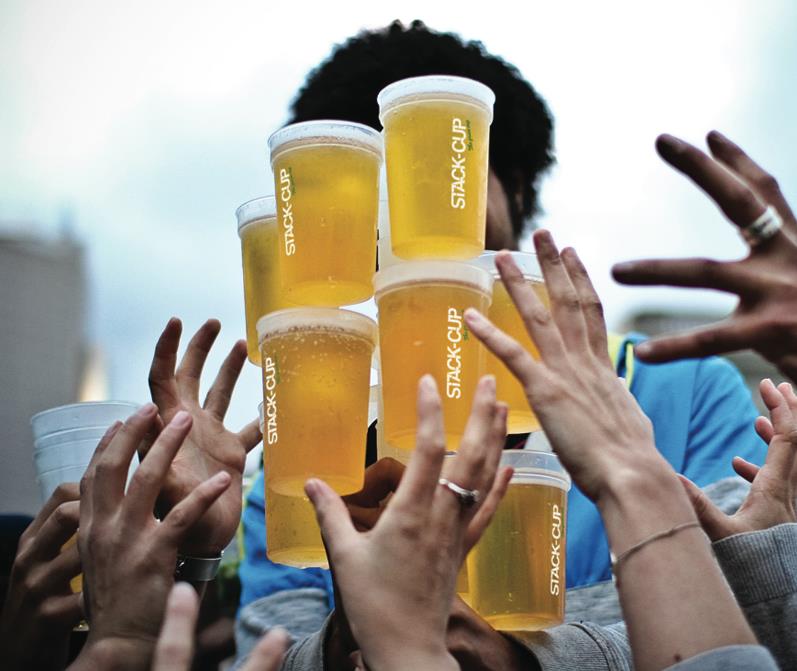
How do ecofriendly cups help the environment?
Here at STACK-CUP™, we exist to enhance experiences with the smartest reusable products. We know that using reusable cups instead of single-use cups significantly reduces plastic production, waste, and the overall environmental impact of serving drinks at your events.
While there are many different types of plastic cups, they all take a considerable amount of energy and resources to produce, and the aftermath in disposing of them creates an even larger environmental impact.
Did you know that on average, plastic cups can take 450 years to decompose?! That’s almost half a millennium that all of that plastic will pollute our planet, our oceans and our bodies…
There really is only one option when it comes to making choices for drinks that will create a sustainable event and that is Reusable cups. Reusable Cups help to fight pollution, they reduce waste at events, and they reduce the energy consumption that is typically used when creating new materials. This decreases the need for additional plastic manufacturing, and it leads to an increase in the use of other, safer materials for the environment. Independent reports that have compared the environmental impact of disposable cups versus reusables show that using reusables is definitely the best solution due to the lower impact that they have on the environment.
But how do reusable cups help the environment?
Waste Reduction: By using a reusable cup instead of disposable cups, you reduce the amount of waste generated at your events. Disposable cups, especially those made from plastic or polystyrene, contribute significantly to landfill and pollution. Reusable cups are designed for multiple uses, reducing the need for single-use alternatives.
Resource Conservation: Disposable cups are typically made from valuable resources like paper, plastic, or Styrofoam, which require energy and raw materials to produce. By using a reusable cup, you help conserve these resources since you don't need a new cup with every drink that you serve.
Energy and Water Conservation: The production process for disposable cups consumes energy and water resources. Reusable cups, on the other hand, require a one-time manufacturing process, after which they can be used repeatedly. By using a reusable cup, you help reduce the overall energy and water footprint associated with cup production.
Reduced Pollution: Disposable cups, especially those made from plastic, contribute to pollution when they are improperly disposed of. They can end up in oceans, rivers, or other natural habitats, harming wildlife and ecosystems. Reusable cups eliminate the need for single-use cups, reducing the amount of plastic and other waste that can pollute the environment.
Greenhouse Gas Emissions: The production, transportation, and disposal of disposable cups contribute to greenhouse gas emissions. By opting for a reusable cup, you reduce the demand for single-use cups and help mitigate the environmental impact associated with their life cycle, including the emissions released during production and waste management.
Cost Savings: While not directly related to the environment, using a reusable cup can save you money in the long run. Many coffee shops and cafes offer discounts to customers who bring their own cups. Over time, these savings can add up, making reusable cups a cost-effective choice. Our clients see an increase in sales everytime they use our cups!
Overall, by choosing to use a reusable cup, although it's a small step, it's an impactful one towards promoting environmental sustainability. Whilst you might think that disposable cups are a more sustainable solution, disposable cups often don't get adequately recycled and end up in landfills and many of them aren't even recyclable… ! Cardboard disposable cups will be lined with plastic to make them waterproof, and this plastic CANNOT be separated from the cardboard. Reusable cups ARE more sustainable and will reduce your waste! Speak to the team today: info@stack-cup.com
